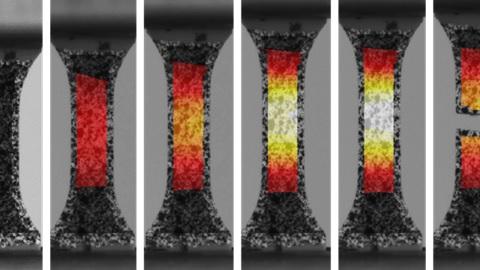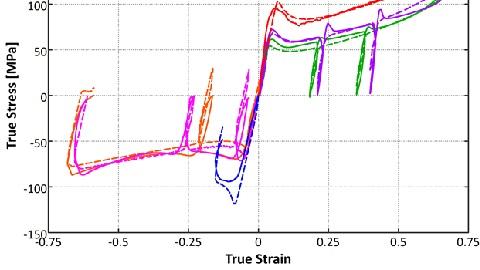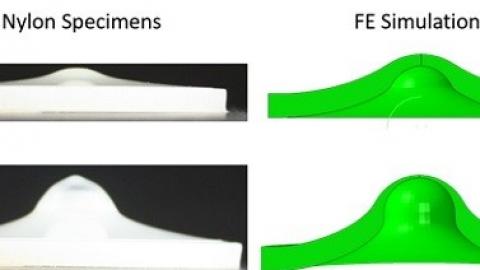Veryst Engineering offers both online (web-based) and in-person (classroom-style) training seminars. Our classes are focused primarily on two areas:
- polymer mechanics, testing, and modeling
- multiphysics analysis
Veryst offers a variety of classes on polymer mechanics, experimental testing, material model selection and calibration, and advanced finite element modeling techniques. These training classes are targeted to people with an interest in learning the state of the art in experimental testing and finite element modeling of parts made from plastics, rubbers, thermosets, or other types of polymers.
Veryst also offers in-person classes on conducting multiphysics analysis specifically involving the use of COMSOL Multiphysics, including the use of COMSOL Multiphysics to solve problems in the medical device industry. As a COMSOL Certified Consultant, Veryst combines extensive experience with COMSOL Multiphysics and grounded knowledge of mechanics, physics, manufacturing, and computational methods to deliver solutions for a wide range of modeling projects.
All classes include theory review and hands-on exercises. The online (web-based) classes can be taken directly from your office, and are made interactive using online exercises and by participating by phone or headset with a microphone. Most of the in-person (classroom-style) training courses are given in our offices in Needham, MA, USA, though some classes are held across the country. Please see below for details.
We are also able to provide customized training classes, tailored to your company’s specific needs. These classes can be held online or in-person either at your office or at Veryst’s offices in Needham, MA. Please contact us if you are interested in learning more about our customized training.
All classes are taught by Veryst engineers.






